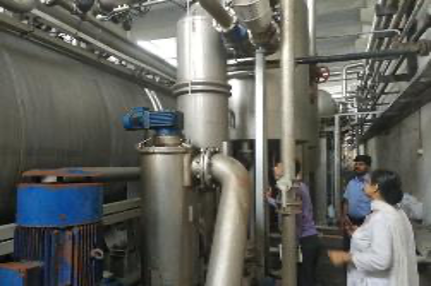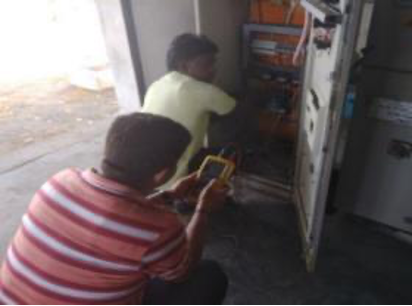On 24 March 2020, India went into the first of its kind lockdown in history, bringing all activity to a standstill. While, most of us remained indoors with hopes that this too shall pass, the small and medium enterprises were hit by a storm – canceled orders, cargos stuck with finished orders and raw materials, a sudden fall in local demand, and a massive exodus of migrant workers, who constitute 20-30% of contract labor in Indian factories.
The Tirupur cluster, also acclaimed as the “Knit City” employs over 600,000 workers approximately and contributes to 90% of knitwear exports from the country; is a shining star amongst the SME clusters of India.

Even during these unprecedented times, in response to the pandemic, the factories in Tirupur rose to the occasion and converted their apparel-manufacturing units to produce millions of facemasks, catering to local and global demand.
The Tirupur cluster is also setting an example in greener, cleaner, and inclusive recovery by prioritizing energy efficiency, clean energy, clean technology adoption, and skill development.
The Institute for Sustainable Communities (ISC) along with the Dyers Association of Tirupur and other institutional partners works with resource intensive factories in Tirupur with a goal of accelerating energy efficiency, and clean energy and technology adoption. Over the last three years, 200 factories have benefitted from skill development programs for energy technicians, government linked energy audit schemes, and technology demonstrations.
Factories are receiving cutting edge technical assistance from industry experts on a range of technologies from thermal to electrical applications. The program has helped factories already realize 10-15% energy savings, through implementation of best operating practices and medium size cleantech investments. The value-add of the program has been with experts surfacing outside the run-of-the-mill solutions, and addressing commercial viability. As an indication, ISC recently completed the demonstration of the first low-grade waste heat recovery project, in the Tirupur cluster – where utilization of low-grade heat, for productive purposes was not considered to be viable earlier.
The first round of follow-ups, post the roll-out of technical assistance package and energy audits, highlight that the factories in Tirupur implemented 33+ energy conservation measures and 14 technological interventions recommended by ISC experts, having a payback period of 12-18 months.

After seeding energy conservation measures for over 4 years, and encouraged by the interest from factories, ISC is committed to further scale-up and enable the advancement of clean energy adoption in Tirupur. As a part of a front-line institutional development measure, ISC is building capacities of local partner institutions to operate, manage and advance the Clean Energy Accelerator. On August 28, 2020, seven leading local institutions joined hands with ISC to support cleaner, greener and safer recovery of Industries in Tirupur, Erode and Coimbatore.
These Institutions i.e. Dyers Association of Tirupur, Perundurai SIPCOT Textile Processors Association, Rotary Screen Printers Association, Mahendra Engineering College, Government College of Technology, Nandha Engineering College and Konghu Velalar Polytechnic College along with ISC and a range of other stakeholders will operate in an ecosystem that will aggregate demand from the industry for clean technology, mainstream cleantech skill development, unlock and enable access to technical expertise, and facilitate affordable finance.
With this, ISC is leveraging the power of people and partnerships to advance a rapid, sustainable and resilient recovery of the Tirupur Textile Cluster. The cluster which is the backbone of India’s apparel exports has bounced back with 15% increase in orders, while recovering from a dip. This cluster is leading the way, demonstrating how factories in India are not just building back, but leaping forward.
Authored by
Suresh Kotla, Director – Energy & Environment, Institute for Sustainable Communities
